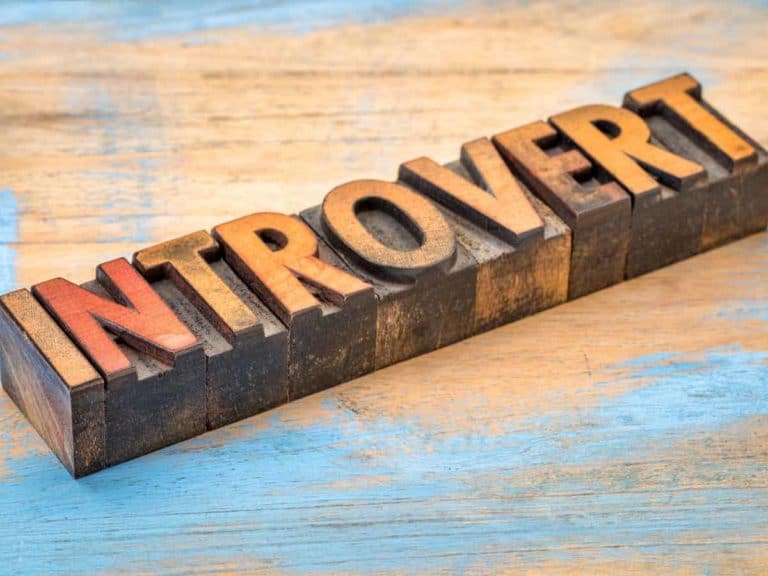How to Survive College as an Introvert
A college campus is usually larger and more diverse than a high school campus.
And that is why an introvert like you may dread saying goodbye to your few select long-time friends and sharing a dorm with a complete stranger as you try to earn an undergraduate degree.
Just as unnerving as the idea of attending college is the thought of applying to college!
It’s no secret that college admissions officers favor students with lots of experience with extracurricular and volunteering activities, which you may have very little of.
So, is life harder for introverts in college?
Unfortunately, college is usually harder for introverts. Numerous introverted students confirm that it’s a struggle for them to be in higher education, especially during the transition from high school to college.
However, it doesn’t mean that it’s impossible to attain college success.
By choosing the right postsecondary institution, you can cope and even thrive very well in an environment where everyone comes from different social and cultural backgrounds and has varying perspectives and personalities.
You can also take advantage of traits exclusive to you to boom as a degree-seeking student.
Paying extra attention to details, listening with genuine interest, focusing intently on the task at hand, and thinking critically and deeply — these and others make you as ready for college as everybody else!

You’re Not Alone: 40% of College Students are Introverts!
Sharing the campus with thousands of students can be overwhelming to introverts.
However, knowing that there are others like them on campus who are secretly fighting the same fight can give them hope and keep them motivated to complete their programs.
There are more introverts in college than you think.
According to ResearchGate, estimates say that around 40% of the college population consists of introverts.
Do College Admissions Put Introverts at a Disadvantage?
Introverted students may be at a disadvantage in college admissions.
This is especially true where the review process is holistic, the kind that considers extracurricular activities that help college admission officers determine what sort of skills applicants have developed in high school.
Whether applying via the Common App or Coalition App, the Activities section is a critical part of your application.
It’s not uncommon for many introverted teens to shy away from opportunities that allow them to gain leadership and communication skills, which many of their extroverted counterparts are likely to take on.
As a matter of fact, extroverts are more likely to get accepted as they demonstrate more valuable skills.
Worry not because your college application can stand out despite you being an introvert.
For instance, you can impress college admissions officers with your high GPA — your kind tends to get high grades, which is why more National Merit Scholars are introverts!
You can also leverage your being creative, introspective, and reflective in writing a compelling college essay.
Here’s a successful Yale application essay whose writer talked about his introversion.
Choosing the Right College and Major
Having very little to no confidence while applying to colleges may impact your admissions chances unfavorably.
To make the idea of pursuing a bachelor’s degree less menacing, make smart choices.
Include some of the best colleges for introverts on your list is wise, such as:
- Small liberal arts schools
- Non-party schools
- Commuter schools
- Colleges with minimal to zero Greek life
- Colleges where sports aren’t big
At times, the best universities for introverts are large ones with a diverse campus — it’s easier to stay hidden with so many people around, and the diversity can keep your unique personality from being highly noticeable.
According to various sources, here are some of the best schools for introverts:
- Allegheny College
- Alma College
- Augustana College
- Biola University
- Bryn Mawr College
- Carleton College
- Drexel University
- Earlham College
- Florida Atlantic University
- Grinnell College
- Harvard University
- Massachusetts Institute of Technology
- New York University
- Northeastern University
- Princeton University
- Reed College
- University of Chicago
- University of the Ozarks
- Vassar College
- Wesleyan University
- Westminster College
- Yale University
Of course, you may also consider attending an online college.
Meanwhile, here’s an article on some of the worst institutions for introverts.

Carefully choosing the right major for an introvert like you is also crucial as it will lead you to a career that you could be committing to until it’s time for your retirement.
Some of the best majors are those that will allow you to spend most of your time working alone and independently.
Although collaboration and coordination may be necessary at times, certain majors warrant working with a small group of people, thus saving you from ending up stressed and exhausted.
The following are the best college majors for introverts you might want to look into:
- Art
- Accounting
- Architecture
- Biology
- Chemistry
- Computer science
- Creative writing
- Economics
- English
- Finance
- Graphic design
- Information technology
- Journalism
- Mathematics
- Psychology
Finding Introverts on Campus
Many people assume that introverts and loners are the same types of people.
Wrong!
Loners tend to avoid people completely because they enjoy being alone — they prefer seeking solitude and thinking introspectively rather than making new friends and hanging out with them.
Meanwhile, introverts love the company of others, particularly being in a small circle of friends.
As an introvert in college who left a bunch of friends back home, the thought of meeting people like you in college and sharing the same interests can be both exciting and a bit daunting.

Here are some tips on how to meet introverts on a college campus:
Join Creative Clubs and Organizations
Around one-third to one-half of the creative population in the US consists of introverts.
You are likely to run into introverts in drawing, photography, film, fashion, and other clubs where members are into pursuits that allow them to use their creativity and expressiveness.
Frequent the Library
It’s not uncommon for many introverted college students to hang out in the library to avoid having to talk to people.
While in the library, keep your eyes peeled for familiar faces, such as those you often see in your classes, your residence hall floor, or secluded corners on campus you also find solace in.
Share the Table With Someone Alone
Is this seat taken?
Ask this nicely, and you are likely to meet your very first introverted friend in the dining hall. It’s also a wonderful idea to ask someone alone at another table if he or she would like to sit with your growing but cozy circle of friends.
Visit the College’s Social Media Accounts
Introverts are better at interacting online than in person because they can control how much interaction they get. That’s why you may find more introverts on social media than in the quadrangle.
People who like and interact with the same posts as you do are likely to have some things in common with you.
Take Advantage of Roommate Matching
Some colleges and universities allow students to choose their roommates.
If the one you are attending has a roommate matching system, make sure you fill out the necessary forms and answer the required questionnaires for increased chances of sharing the dorm with someone compatible with your personality type.
Read Next: Worst Colleges for Shy Students
Disclaimer: The views and opinions expressed in this article are those of the authors and do not necessarily represent those of the College Reality Check.



